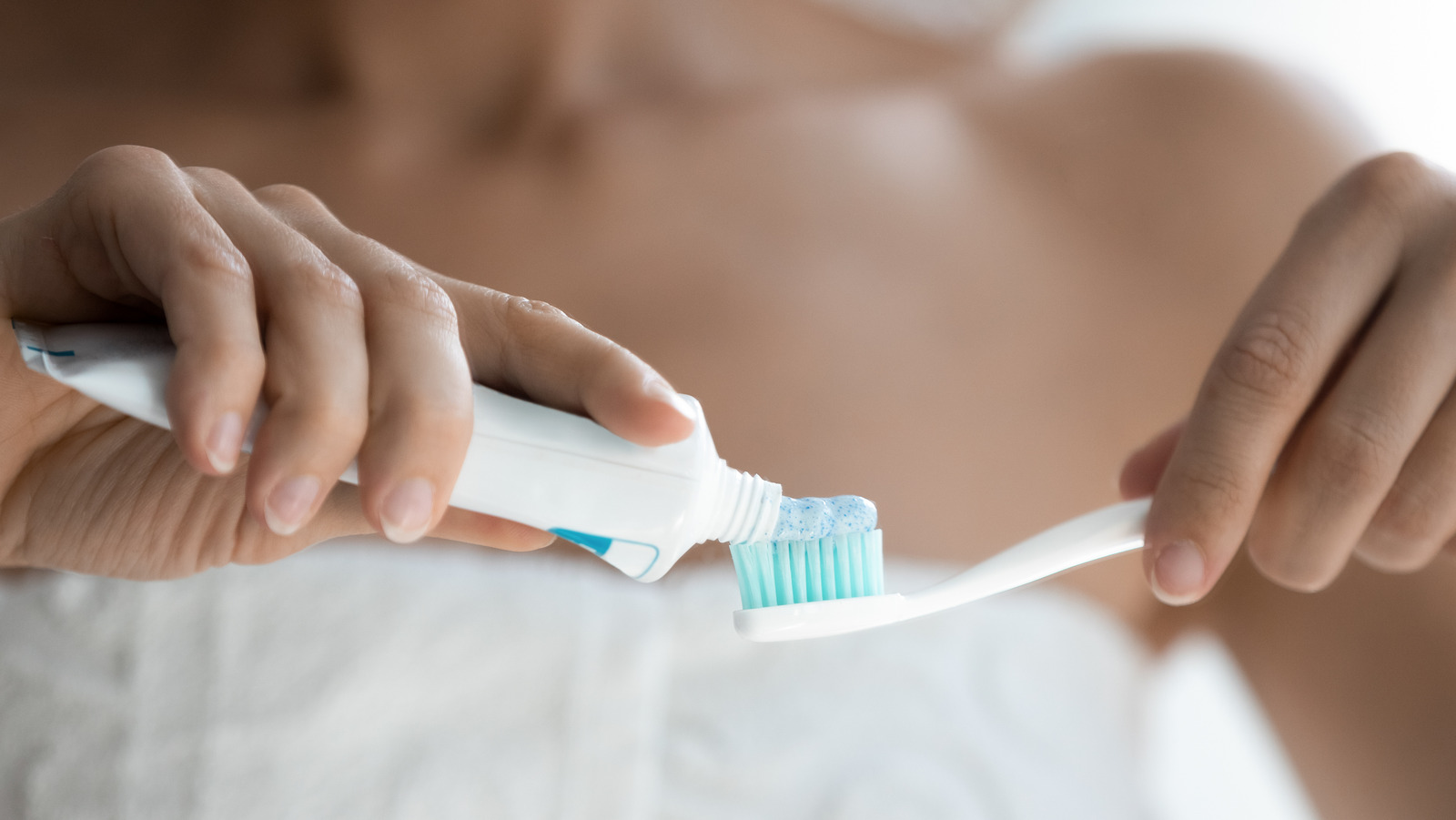
If You Swallow Too Much Toothpaste, This Is What Happens To Your Body – Health Digest
Look at the box of any fluoride-containing toothpaste, and you’ll see a warning that reads, “If more than what is used for brushing is accidentally swallowed, get medical help or contact a Poison Control Center right away” (via American Fluoridation Society). While fluoride can’t be found in all toothpaste products, it’s natural to wonder: What is considered too much toothpaste to swallow before it puts us at risk — and for what, exactly?
First, let’s examine the possible outcomes of swallowing a small amount of toothpaste. This might occur in cases where a person decides not to rinse their mouth out with water after brushing their teeth. Some dental experts advise this. By just spitting out our toothpaste, this gives the fluoride more time to do its job rather than getting immediately washed down the drain (via Noll Family Dentistry).
However, this may increase the chances of a small amount of toothpaste residue making its way down your throat. Yet, experts at Jackson Smiles Family Dentistry explain that fluoride generally poses no risk to human health if only a small amount is consumed. This is true for children, too. The National Capital Poison Center reports that children who ingest small amounts of toothpaste will likely experience no more than mild digestive discomfort.
How many milligrams of fluoride is too much to swallow?
 mavo/Shutterstock
mavo/Shutterstock
Sodium fluoride and triclosan are the two toxic chemicals in toothpaste that, when eaten in excess, can lead to symptoms of an overdose such as vomiting, diarrhea, convulsions, trouble breathing, reduced heart rate, heart attack, and more (via Mount Sinai). While this may sound unnerving, the National Capital Poison Center emphasizes that non-prescription toothpaste products do not contain high concentrations of fluoride, but only enough to keep our teeth healthy and strong. So little, in fact, that a child would have to consume several tubes of toothpaste to be at risk for serious health outcomes (via Jackson Smiles Family Dentistry).
To get even more specific, researchers from a 2017 scientific review published in the Iranian Journal of Basic Medical Sciences noted that a child or adult would have to consume 5 milligrams of fluoride per kilogram of body weight (approximately 2.2 pounds) to reach toxic levels. Furthermore, children would have to ingest at least 16 milligrams of fluoride per kilogram of body weight for toothpaste consumption to potentially be fatal. For adults, the lethal amount of fluoride stands at 32 milligrams per kilogram of body weight. Because you’ll only find approximately 1.3 milligrams of fluoride in one dollop of toothpaste, knowing these numbers may help ease any fears around toothpaste consumption (via AutoBrush).
Can you swallow too much natural toothpaste?
 Iryna Mylinska/Shutterstock
Iryna Mylinska/Shutterstock
In the long term, ingesting large amounts of fluoride can put one at risk for muscular spasms, renal system dysfunction, chronic indigestion, birth defects, cancer, or dental fluorosis (via Iranian Journal of Basic Medical Sciences). More commonly seen in children, dental fluorosis is a condition characterized by tooth discoloration as a result of high levels of fluoride in the body that interfere with the formation of protective enamel.
We’ve talked a great deal about fluoride-containing toothpastes, but with the growing popularity of organic products, are there any risks to swallowing toothpaste made with natural ingredients? Experts at Dental Associates for Kids Only state that while the risk of overdose is eliminated, it’s still important to check the label to make sure all other ingredients are safe and effective in supporting your child’s oral health. As a side note, some natural toothpastes, such as activated charcoal, are not recommended for kids as they may be too harsh on their still-growing teeth (per WebMD).
If a person is exhibiting signs of a toothpaste overdose, be sure to call for emergency services or contact the national Poison Help hotline at 1-800-222-1222. Provide as much information as possible, including the individual’s age, weight, product name, and when and how much toothpaste was ingested. According to Mount Sinai, you can give the person water or milk, but only if they are not experiencing severe symptoms like vomiting or convulsions.







































:max_bytes(150000):strip_icc():focal(704x299:706x301)/Ella-Reed-NBC-01-051523-f649b03172894ede80514e18bbe46427.jpg?fit=1024%2C1024&ssl=1)
:max_bytes(150000):strip_icc():focal(999x0:1001x2)/linda-fruits-real-life-love-051823-1-c3ab617a48974b0798bc30fc29eb951f.jpg?fit=1024%2C1024&ssl=1)
























